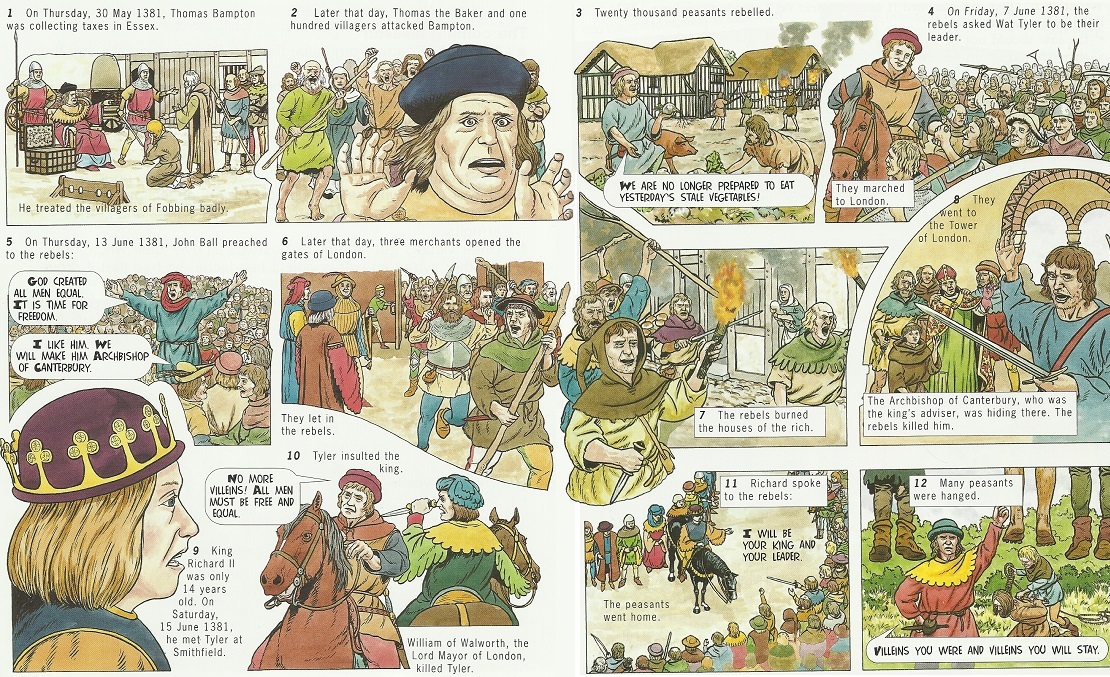
The Peasants' Revolt


Introduction
As historians, you will be used to baronial revolts in the Middle Ages but, in 1381, there was a different kind of rebellion.
Twenty thousand peasants, led by a few soldiers and lower-ranking priests, took London and almost overturned the government.
What caused such an amazing and unprecedented event ?
Here are TEN causes (not in any sort of order)which historians have suggested:
1 The villeins hated being villeins. Some had taken their lords to court to get their duties reduced. Others joined together and refused to work for their lords. This had been going on since 1300. Parliament had recently passed a law to stop this, and to imprison 'all such rebels'.
2 On Thursday, 30 May 1381, Thomas Bampton tried to collect the Poll Tax from the villagers of Fobbing in Essex. He threatened the men. He lifted the females' skirts to see if they were women (who had to pay) or girls (who did not). This made the villagers angry and they rioted.
3 After the Black Death of 1348-50, poor people became rebellious, bitter and angry. They would not take orders from anybody.
4 In March 1381 Parliament sent Commissioners to every village to make everybody pay a Poll Tax. It was the third Poll Tax in four years. The tax was hard on the poor people, who became very angry.
5 Since 1377, England had been ruled by a boy-king. At the time of the Peasants' Revolt, Richard II was only 14 years old. This meant that the government was weak, and the peasants felt they had more chance of success.
6 In 1351, Parliament had passed a law saying that if a workman asked for a wage rise, he could be outlawed or branded. This made the workers angry.
7 On Friday, 7 June 1381, the rebels asked Wat Tyler to be their leader. He was an ex-soldier and a good leader.
8 Since 1360 a priest called John Ball had criticised wealthy priests and lords. He told the rebels: God created all men equal. It is time for freedom. The rulers are the weeds of England, and you must pick out and throw away the evil lords. The peasants liked him. He encouraged them to rebel.
9 Since 1369, England had been fighting — and losing — a war against France. People were angry and blamed the government.
10 The merchants and traders of London hated each other. They supported the rebellion because they hoped that the peasants would kill their enemies. On Thursday, 13 June 1381, three of them opened the gates of London for the rebels.
Study this webpage, then answer the question sheet by clicking on the 'Time to Work' icon at the top of the page.
Links:
The following websites will help you research further:
Medieval plague:
• KS3 BBC Bitesize on
the Peasants' Revolt - including a
simple video • Video by
Tony Robinson